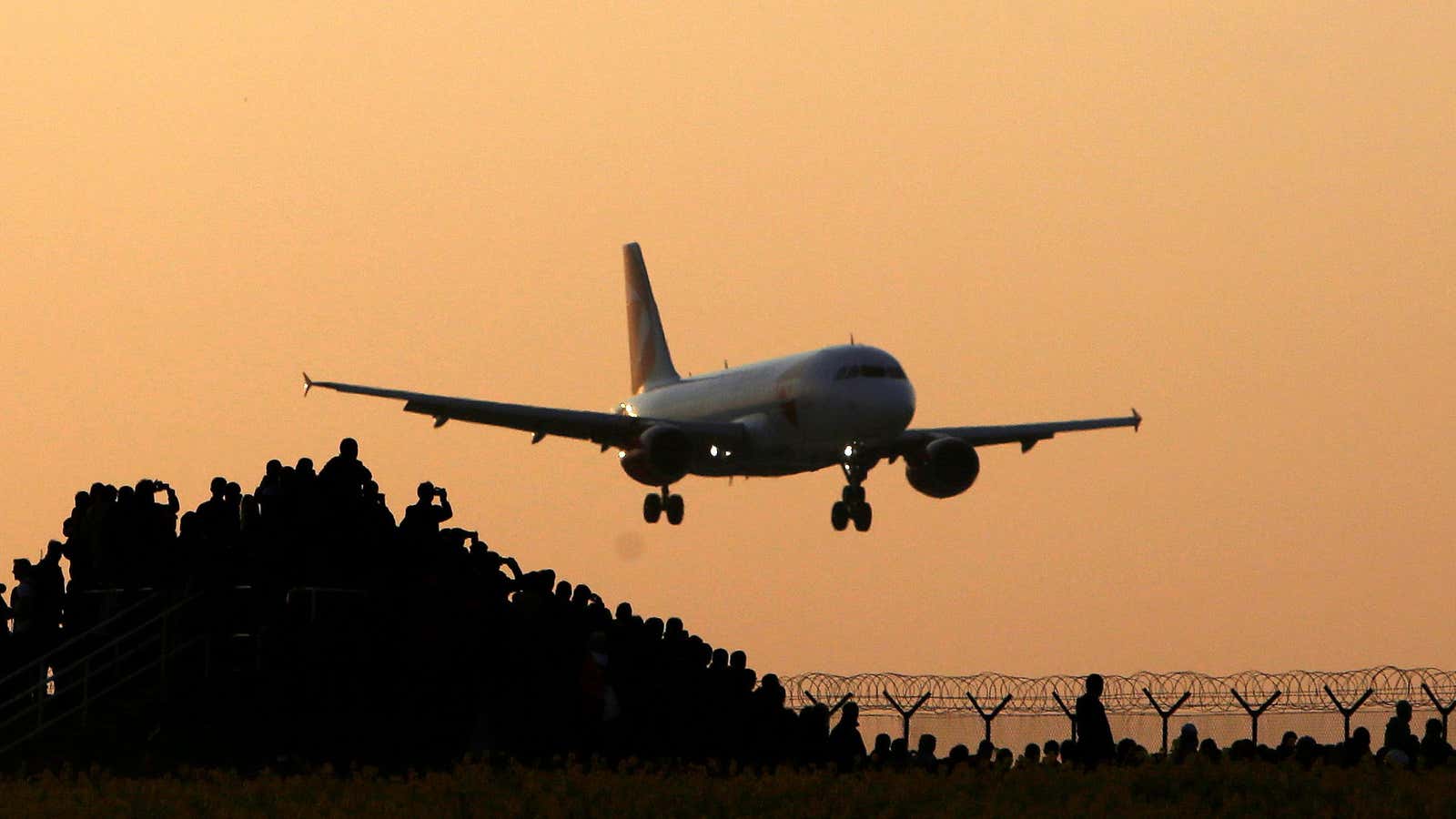The United Nations has organized the first international pact to reduce the airline industry’s carbon emissions. And the airline industry supported the deal.
But there’s some fine print.
The restrictions won’t even be set for several more years—emissions will be capped at 2020 levels, and may indeed rise before then—and the standards won’t become mandatory until 2027, said the International Civil Aviation Organization, the aviation branch of the United Nations.
The United States and other nations that together contribute more than 80% of the world’s aviation emissions have volunteered to begin abiding by the new restrictions starting in 2021. Russia and India have said they wouldn’t participate in the early phase, Reuters reported.
And airlines won’t necessarily have to burn less fuel; emissions beyond the 2020 levels could be offset with investments in renewable energy projects and environmental programs.
Aviation contributes about 2% of the world’s carbon emissions, but it is a fast-growing industry.
Airlines themselves have tried to reduce their use of fuel—it’s the carriers’ biggest variable cost. Some have been buying more fuel-efficient planes. Virgin Atlantic has experimented with behavioral psychology to get pilots to burn less fuel. JetBlue last month struck 10-year deal to buy biofuel to blend into its fossil fuel.
But the industry is still reveling in a sustained period of cheap fuel. Plummeting energy prices have given airlines strong profits, helping them to buy more emissions-generating aircraft, while generating some reasonable fares for passengers.
The UN program could cost around $6 billion a year by 2025 and as much as $23.9 billion a year by 2035, according to the ICAO, but a Bloomberg News analysis found the cost to passengers may not be much more than the price of a glass of wine.




